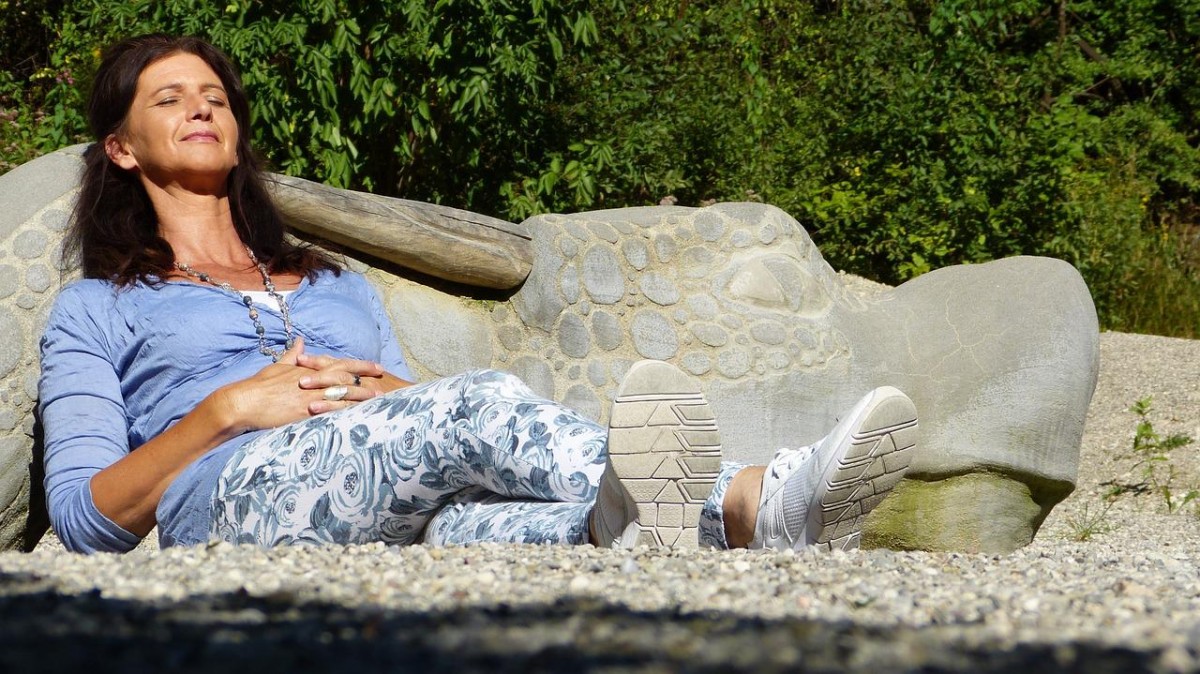
By Siobhán Carroll – BA; Dip Nat; Dip Herb; MANP; MGNC
Menopause officially marks the end of a woman’s reproductive years. This life stage is well known, but there are different stages within menopause, such as peri-menopause, that are less well known, yet not without symptoms.
Peri-menopause is the preliminary stage of the menopause, and for many women, a time of considerable change and emotional upheaval – although incredibly, it’s not talked about nearly enough.
Medically speaking, peri-menopause starts when the first menopausal symptoms are noticed, typically mid-40s, and ends a year after the last menstrual bleed, or the point in time when menopause has been reached. Biologically speaking, peri-menopause marks a decline in the production of hormones that drive the menstrual cycle, specifically oestrogen and progesterone.
Only 12 per cent of women just wake up one day and never have another period. The other 88 per cent notice fluctuations in their cycle as their ovaries lose steam: their cycles are longer or shorter than usual, heavier or lighter, or characterised by intermittent spotting.
The test for menopause is clear-cut: 12 months without a period according to most doctors, although you should allow 24 months to be sure. However, there’s no sure-fire method to identify perimenopause.
Although part of the same overall life transition, menopause and peri-menopause can have different symptoms. During peri-menopause, you may start to experience symptoms of menopause, such as hot flushes and night sweats, but peri-menopause symptoms can vary greatly, and in some women, are similar to symptoms of PMS.

Just as menopause is different for every woman, so is peri-menopause, but a few more frequently encountered symptoms during peri-menopause include: irregular, painful periods or periods that are heavier than usual, breast pain, hair loss, anxiety and irritability, dryness of various tissues (skin, eyes, vaginal), temperature irregularity, trouble sleeping and insomnia (and consequently tiredness), low mood and libido, and muscle and joint aches and pains.
A key point to appreciate is that your adrenal glands (which produce adrenalin when you are stressed) are able to make ‘back-up’ hormones to buffer the fall of oestrogen and progesterone during the menopause. They are less able to do this if you are highly stressed and therefore demanding adrenalin production. Rest and relaxation are some of the most important ‘treatments’ for keeping the transition from perimenopause to menopause a happy time. Factor in some R&R as a matter of priority.
The adrenal glands need plenty of magnesium and vitamin B. Magnesium levels drop in the week before your period, so if you’re deficient it tends to show up markedly during that week. Monitoring how you feel during that time will therefore give a good clue as to how your magnesium levels are faring.
Some wonderfully rich sources of magnesium include: dark green vegetables such as spinach and chard, apples, artichokes, avocados, bananas, black beans, nuts (almonds, Brazil nuts, cashews and hazels), brown rice, dates, figs, dried apricots, the list goes on.
There are also a number of natural treatments and herbal remedies that can help to smooth this transition for you.
A. Vogel’s Menopause Support tackles all stages of menopause, and contains soy isoflavones which naturally mimic the effect of oestrogen in the body. Isoflavones, oestrogen-like plant hormones or phytoestrogens, can provide an additional hormone boost when oestrogen levels are low
Sage helps to correct sweat regulation and diminish hot flushes. Fresh sage tincture diluted in a little water three times daily can really help. Try Menosan Sage Drops or for extra oomph, Menoforce Sage Tablets.
For symptoms of PMS during peri-menopause, try Agnus castus. This is the herb of choice if symptoms start after ovulation and disappear once menstrual bleeding starts. It can be very useful if symptoms also include painful periods and breast tenderness.
And for trouble sleeping, there’s Valerian.
For emotional support during any time of challenge, nothing beats exercise. It’s a great way of producing happy chemicals (endorphins), metabolising carbs, toning muscle (which then burns more calories), and working off aggressive feelings. Any type of exercise that takes your fancy is fine, so long as it gets you moving or toning.

About Siobhán
Siobhán Carroll is a fully qualified clinical Herbalist and Naturopath based in Ireland. She runs her own clinic in Co. Clare and online via her website nerdynaturopath.com. She has 10 years of experience in the field of natural health, she also teaches yoga and meditation and is a lecturer at the College of Naturopathic Medicine.
Siobhán is also a cold-water sea swimmer, a loving mum and a massive Harry Potter fan. She has a deep connection with plants and is passionate about empowering people to look after their own health using the healing powers of nature.
Siobhán Carroll BA; Dip Nat; Dip Herb; MANP; MGNC
For further information on the peri-menopause or menopause, contact Siobhán Carroll BA on +353 (85) 216 2808.
Follow Siobhán on Facebook.